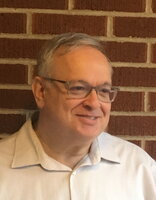
The University of Illinois has long been a center for Russian, Soviet, and Eurasian studies. Leveraging these strengths, the Department of History offers a comprehensive graduate program in this field, with a proud tradition of mentoring new scholars and scholarship. We offer a comprehensive suite of thematic and survey courses at the graduate level, covering Russian, Soviet, and Eurasian History, 1500 to the present. Our faculty have interests in political, social, cultural, and intellectual history, and investigate questions of race and ethnicity, citizenship, violence, toleration, gender, family life, the history of archives and sources, space, and communication.
Campus Resources
Graduate students in History at Illinois also benefit from numerous campus resources. Illinois has dozens of faculty and staff with interests in Russian, East European, and Eurasian studies (some of whom are listed below), in numerous departments across campus. Our Library is the home of one of the world’s great collections in the REEES field, which every year draws dozens of scholars from around the world to conduct research. The Russian, East European, and Eurasian Center (REEEC) at Illinois is a federally-designated National Resource Center, and offers Foreign Language and Area Studies (FLAS) fellowships for both academic year and summer study. Illinois hosts the editorial offices of our field’s flagship journal, The Slavic Review, and is also home to the celebrated research support specialists of the Slavic Reference Service. Scholars from Illinois regularly participate in conferences all over the globe, and we regularly host the Midwest Russian History Workshop. Other important campus resources for our program include The Unit for Criticism and Interpretive Theory, the Humanities Research Institute, and the School of Information Science, a hub of digital humanities and data science innovation on campus.
Drawing on these resources, graduate students at Illinois have the opportunity to develop as researchers, teachers, and scholars across their time at Illinois. They also develop professional skills and networks to sustain their careers afterwards.
Graduate Examinations in our field are developed through one-on-one consultations with faculty. Examinees develop their exam lists building from a Zotero library of scholarship we have built and maintain online.
Other Resources
Related Faculty in Other Departments
Donna Buchanan (School of Music: Musical southeastern Europe, the Balkans, and the former Soviet Union (particularly Russia); nationalism in Russian and East European classical music; ethnomusicology; Mussorgsky; Shostakovich.)
David Cooper (Department of Slavic Languages and Literatures: Czech, Slovak, and Russian literatures)
Michael Finke (Department of Slavic Languages and Literatures: 19th and 20th century Russian literature; aviation and popular culture)
Robert Geraci (University Library: Russian empire, nationalities, empire, commerce)
Jessica Greenberg (Department of Anthropology: Serbia/Yugoslavia; democracy; revolution; political communication; postsocialism; youth and student activism)
Valleri Robinson (Department of Theatre: Russian-American cultural exchange, Cold War performances, transnational theatre historiography, and Chekhov in translation and adaptation)
Kristin Romberg (Art History Program: 20th century Russian art, constructivism)
Valeria Sobol (Department of Slavic Languages and Literatures: 19th century Russian literature)
Richard Tempest (Department of Slavic Languages and Literatures: Russian intellectual history)
Dissertations Completed in Russian History since 2000
- Susan Smith, "Genesis of a Public Sphere in Russia: Vladimir Province, 1785-1861," 2000
- Jeffery Sahadeo, "Creating a Russian Colonial Community: City, Nation, and Empire in Tashkent, 18651923," 2000
- Marjorie Hilton, "Commercial Cultures: Modernity in Russia and the Soviet Union, 1880-1930," 2003
- Christine Varga-Harris, "Constructing the Soviet Hearth: Home, Citizenship, and Socialism in Russia, 1956-64," 2005
- Gregory Stroud, “Retrospective Revolution: A History of Time and Memory in Urban Russia, 1903-1923,” 2006
- Erica Fraser, “Masculinities in the Motherland: Gender and Authority in the Soviet Union During the Cold War, 1945-1968,” 2009
- Dmitry Tartakovsky, "Parallel Ruptures: Jews of Bessarabia and Transnistria Between Romanian Nationalism and Soviet Communism, 1918-1940," 2009
- Sharyl Corrado, "The 'End of the Earth': Sakhalin Island in the Russian Imperial Imagination, 1949-1906," 2010
- Randall Dills, "The River Neva and the Imperial Facade: Culture and Enviroment in Nineteenth-Century St. Petersburg, Russia," 2010
- Andy Bruno, “Making Nature Modern: Economic Transformation and the Environment in the Soviet North,” 2011.
- Rebecca Mitchell, “Nietzsche’s Orphans: Music and the Search for Unity in Revolutionary Russia, 1905-1921,” 2011
- Maria Cristina Galmarini, “The ‘Right to Be Helped’: Welfare Policies and Notions of Rights at the Margins of Soviet Society, 1917-1950”, 2012.
- Gregory Kveberg, “Moscow by Night: Musical Subcultures, Identity Formation, and Cultural Evolution in Russia, 1977-2008,” 2012
- Jesse Murray, “Community, Belonging, and Identity: Conversion in the Russian Empire, 1810-1917,” 2013
- Steven Jug, “All Stalin’s Men? Soldierly Masculinities in the Soviet War Effort, 1938-1945,” 2013
- Elana Jakel, “Ukraine without Jews?" Nationality and Belonging in Soviet Ukraine, 1943-1948,” 2014
- Rachel Koroloff, “Seeds of Exchange: Collecting for Russia’s Apothecary and Botanical Gardens in the Seventeenth and Eighteenth Centuries,” 2014
- Patryk Reid, “Managing Nature, Constructing the State: The Material Foundation of Soviet Empire in Tajikistan, 1917-1937,” 2016
- Deirdre Ruscitti Harshman, "A Space Called Home: Housing and the Management of the Everyday in Russia, 1890-1935," 2018
- Benjamin Bamberger, "Mountains of Discontent: Georgian Alpinism and the Limits of Soviet Equality, 1923-1955," 2019
- Matthew Klopfenstein, "Performing death: Celebrity women's funerals and the emotional public sphere in late imperial Russia," 2021
- Elizabeth Abosch, "Soundtracking Sovietness: Daily life, Labor, and the Power of Song in Russia, 1920-1980" (2024)
- Franziska Yost, "Russian Blue: The Production of Queer Identity in 1990s Russia" (2024)
History Faculty working in Russian, Soviet, and Eurasian


Affiliated Faculty working in Russian, Soviet, and Eurasian
